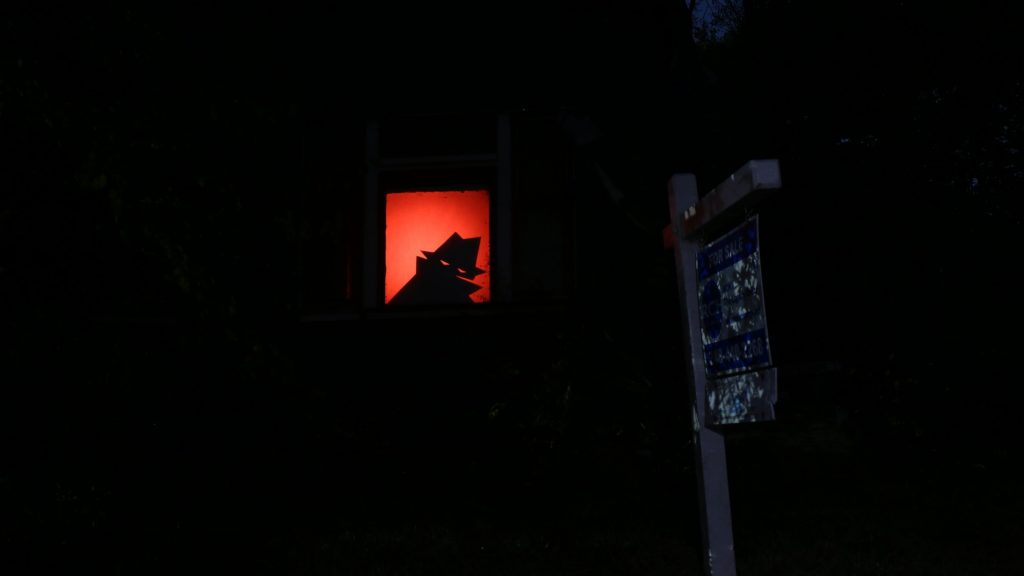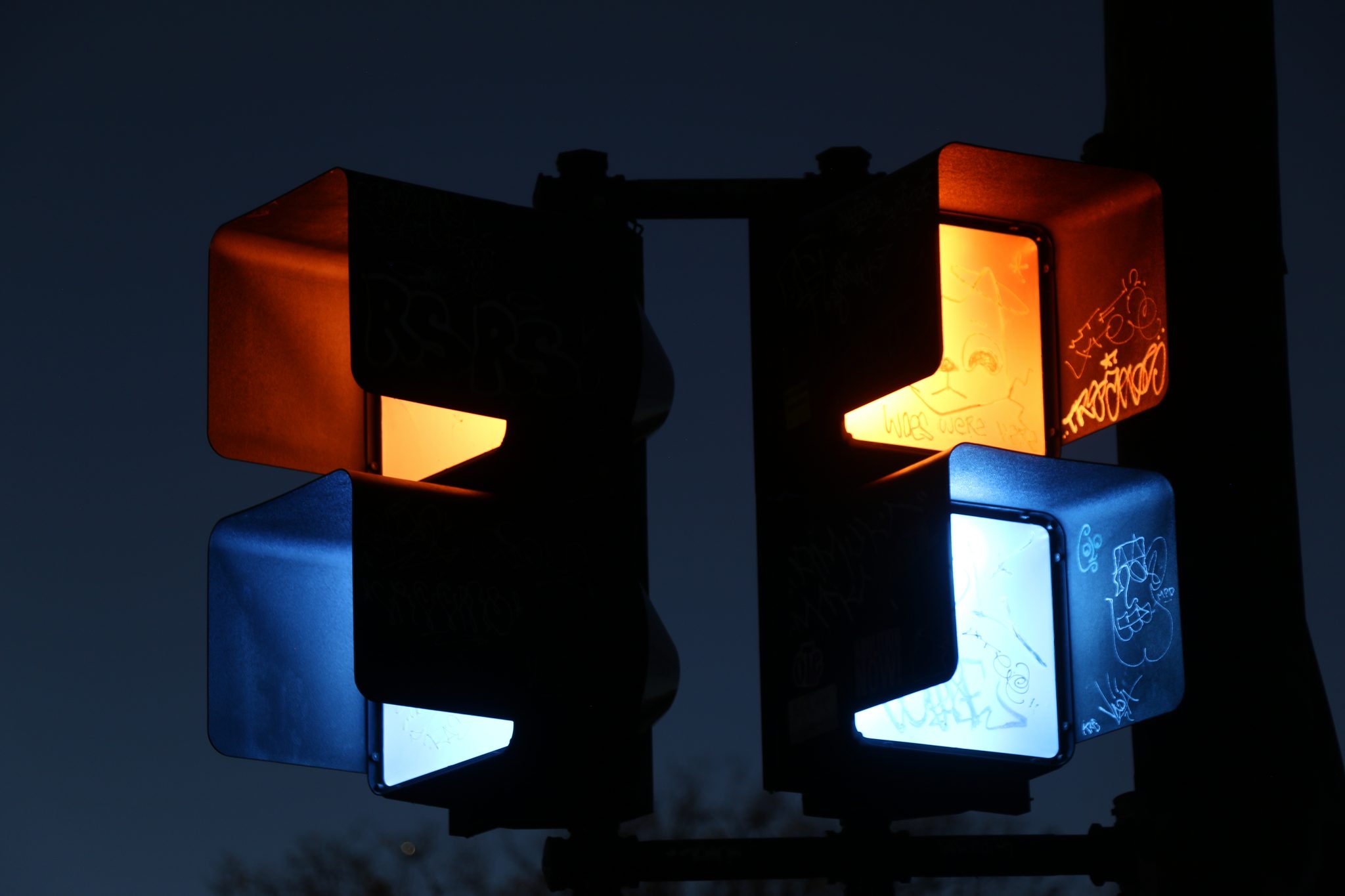The Metro: VHF Project bringing solar-powered street art to Corktown
John Filbrandt October 28, 2024Detroit-based artist Cary Longchamps has been placing public art in abandoned buildings around Detroit.

A photo of Boris the Burglar in North Corktown, one of the many installations a part of The VHF Project.
While Detroit’s abandoned houses are dwindling, they still dot many neighborhoods in the city.
Detroit-based artist Cary Longchamps spent his childhood exploring abandoned places in New Hampshire. His latest project is making Longchamps feel like a kid again and also exploring public art in a new way in Detroit.
Subscribe to The Metro on Apple Podcasts, Spotify, NPR.org or wherever you get your podcasts.
Longchamps has been placing public art in abandoned buildings while boarding them up in Detroit’s North Corktown neighborhood and on the east side. WDET’s Jack Filbrandt recently spent a night running around North Corktown with Longchamps.
VHF, or very high frequency, is a radio channel used by the police, Coast Guard, other first responders and neighborhood watch programs before cell phones. While Longchamps is the brains behind the project, the star of the show is Boris the Burglar, the neighborhood watch program’s mascot.
“I remember seeing him on street signs when I was a kid. I grew up in the ’80s, I was on my bike all the time, and you know, the big thing back then was get home before the street lights come on, or the boogeyman will get you,” Longchamps said. “It could be the Sandman. It could be anybody. But I always thought that Boris the Burglar was my version of the Boogeyman. So I just thought it would be kind of fun to play with that image and kind of just turn that irrational fear on its head.”
The VHF Project is a simple set up that really allows the art to shine, Longchamps said. A small solar panel placed on the outside of the house makes the stencil shine.
“I mean the stencil is made out of chipboard, we got butcher paper, we have a $17 landscape light from Amazon,” Longchamps says. “You know, it’s not anything crazy extensive, but it does have a big impact.”

It’s not just Boris the Burglar that Longchamps is lighting up. You can also see his crosswalk creation at the Humboldt Forest Graffiti Park, which uses the same technology.
Longchamps’ first solo exhibit will be at Corktown Studios in January.
More headlines from The Metro on Oct. 28, 2024:
- The Federal-Aid Highway Act of 1956 led to years of so-called urban renewal across the country. That renewal meant removing blight and building new housing. It frequently happened in majority Black and poor communities. It led to the destruction of neighborhoods throughout Detroit, one example of this is the construction of I-375, which destroyed Black Bottom. Now, the city plans to undo I-375 to reconnect parts of the city. This may also happen in Midtown and Downtown with the capping of I-75. Jeff Horner, a Wayne State professor in the Urban Studies and Planning department, joined The Metro to discuss the history of urban renewal and recent urban planning projects.
- The Great Recession hurt many Americans and the most vulnerable people the most. That was true for a lot of Detroiters. The fallout from the economic downturn led to the city over-assessing homes – tens of thousands of homes that were overtaxed by $600 million from 2010 to 2017. A lot of those homes were sold and some made profits. But a decision by the state Supreme Court this past summer marks a change. It means that over 2,000 Detroit homeowners could recover some of the profits made on their foreclosed homes. Alex Alsup joins the show to talk about this problem. He writes “The Chargeback” substack and created a map to help people recover profits.
- According to the United Nations Refugee Agency, 1.5% of the entire world’s population has been forcibly displaced. The UN says this is nearly double the number of displaced people a decade ago. Over the last year in Detroit, a few local organizations have been working around the clock to try and meet this growing need. We’re joined by Freedom House Detroit Leader Elizabeth Orozco Vasquez to talk about how they’re supporting immigrants in Detroit.
Listen to The Metro weekdays from 11 a.m. to noon ET on 101.9 FM and streaming on-demand.
Trusted, accurate, up-to-date.
WDET strives to make our journalism accessible to everyone. As a public media institution, we maintain our journalistic integrity through independent support from readers like you. If you value WDET as your source of news, music and conversation, please make a gift today.
Author
-
Jack Filbrandt is an assistant producer on WDET's daily news, arts and culture program, The Metro. He grew up on Lake Michigan and has called Detroit home for seven years. He's also a Detroit Documenter, covering local government meetings in the city. He previously worked for Wayne State's student newspaper, The South End, and The Battering Ram.
